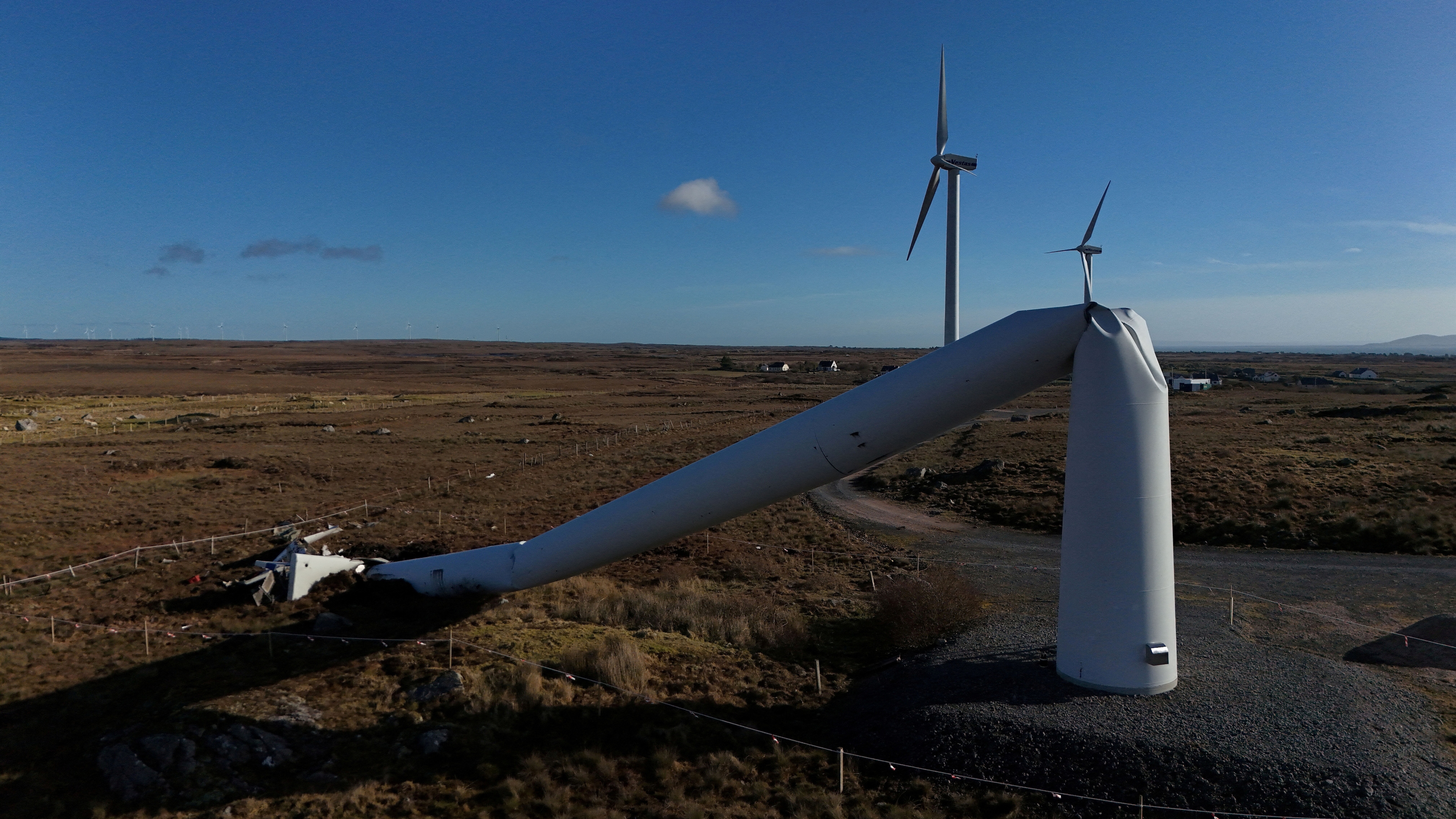3 principles to help impact investing achieve a sustainable and inclusive future

Case studies show that impact investing leads to better societal outcomes. Image: Unsplash/Santi Vedrí
- The global economy is facing challenges after consecutive crises, but economic growth can be redefined with more emphasis on innovation, inclusion, sustainability and resilience.
- Impact investing could create significant economic growth and societal impact by using inclusive innovation, capacity-building and sustainability.
- Precedents for such impact exist, such as an initiative to improve internet access in underserved areas that has led to better educational outcomes and job opportunities.
The events of the past few years have worn down on the economy.
Economic growth has significantly slowed, with average gross domestic product growth plummeting from nearly 6% in emerging markets and over 2% in advanced economies in the early 2000s to below 2% and 1.5%, respectively. This slowdown is compounded by a series of crises, including the COVID-19 pandemic – which has exacerbated public debt and reversed global development progress – and the lingering effects of the global financial crisis.
Furthermore, geopolitical tensions have created an increasingly multipolar world, impacting technology, growth and development. Above all, the alarming rise in global temperatures poses a significant threat to humanity’s long-term prospects.

Despite these formidable obstacles, there is a unique opportunity to usher in a growth revolution – one that redefines the economic landscape by balancing quantity with quality. This new era of growth aims to integrate developed and underdeveloped economies, regions and sectors, transforming them into powerful engines of economic expansion. Central to this transformation is the Future of Growth Framework proposed by the World Economic Forum, which emphasizes four pillars essential for balanced growth: innovation, inclusion, sustainability and resilience.

As a seasoned venture capitalist at Peregrine Ventures and former leader of global initiatives at Qualcomm, I have witnessed firsthand the transformative power of impact investing. These investments have driven significant economic growth and societal impact over millions of lives across continents, proving that sustainability is not just a necessity but a strategic advantage.
Impact investing – rooted in the three core principles of inclusive innovation, capacity-building, and sustainability as a strategy – can, therefore, serve as catalysts for this growth revolution.
3 key principles for impact investing
Amid a complex global landscape, the true measure of investment transcends traditional financial metrics and must be linked to societal advancement and environmental sustainability.
That is why we target investments using a deep understanding of and leveraging the megatrends shaping our economy, society, and environment. These investments represent innovative opportunities and provide sustainable returns, addressing pressing global challenges. They also integrate advanced technologies and sustainable practices. The portfolio companies we build can then be more than economic engines and serve as catalysts for positive change.
With these aims in mind, these three principles underline investments.
Principle 1: Inclusive innovation as a catalyst for quality growth
Inclusive innovation transforms low to middle-income communities into hubs of growth, ensuring everyone benefits from economic progress. By making resources accessible to all, inclusive innovation empowers communities, drives sustainable growth and builds a foundation for long-term prosperity.
Case study: Bridging the digital divide with inclusive internet solutions
In many low- to middle-income communities, unreliable and slow internet access hinders economic development, education and social inclusion. To tackle this issue, I led a global initiative at Qualcomm, partnering with major carriers such as China Telecom to create advanced internet performance solutions that deliver high-quality internet access, even with limited bandwidth.
Implemented in rural and underserved urban areas, including over 200 villages and schools in remote areas of Tibet. Students now access online educational resources, virtual classrooms and e-learning platforms, resulting in improved learning outcomes, higher literacy rates and expanded skills. For the workforce, better internet access enables remote work and entry into the global job market, creating new employment opportunities in regions with limited local jobs.
As one outcome, tens of thousands of new digital merchants now sell local specialities, such as gems and handicrafts, through e-commerce platforms, tapping into a global customer base and boosting local economies. Freelancers, small business owners and entrepreneurs can now reach broader markets, collaborate internationally, and scale their operations, driving significant local economic growth.
Principle 2: Capacity-building for resilient economies
Capacity-building is crucial for creating resilient economies, as it enhances the skills and knowledge of local entrepreneurs, businesses and communities. By offering targeted training programmes, mentorship and access to global networks, we empower local stakeholders to drive sustainable growth.
Case study: Partnership with local incubators and communities
In North America, we partnered with Silicon Valley tech incubators to support entrepreneurs from underdeveloped regions and communities.
One notable success was a startup focused on high-performance telecommunication solutions with a reduced carbon footprint. Through training and mentorship, the startup developed a cost-effective solution that significantly lowered carbon emissions. Access to Peregrine’s global network enabled the startup to secure funding and partnerships, rapidly scaling its operations. This greener telecommunication solution has since been deployed in major regions of Asia, providing sustainable telecommunication solutions for leading telecom carriers.
Principle 3: Sustainability as a strategy for long-term growth
Sustainability is a cornerstone of our investment philosophy. Integrating sustainable practices into our portfolio companies is crucial for driving long-term economic growth, fostering innovation and creating resilient communities.
Our dual focus on profitability and sustainability ensures our portfolio companies are well-positioned for enduring success in an increasingly conscious global market.
Case study: Addepar – from startup to global leader in wealth management
Addepar, one of Peregrine Ventures’ portfolio companies, was established to meet the growing demand for transparency and efficiency in investment management. It has since developed an advanced platform that seamlessly integrates environmental, social and governance criteria into the investment decision-making process.
This platform makes it effective and convenient for asset managers to incorporate ESG considerations and expected outcomes across portfolio construction, monitoring and rebalancing. That ensures that investments are financially sound and socially and environmentally responsible.
Addepar’s global platform now serves thousands of top-tier institutional investors, managing trillions in assets. By directing substantial capital towards sustainable enterprises, Addepar is transforming the investment landscape, proving the power of sustainability as a long-term growth strategy.

The future of our economies, societies and communities is being shaped and tested by the decisions we make today. Economic growth remains the best way to improve societies as a whole. High-quality growth that emphasizes sustainability has proven to be the practical solution to address the pressing global challenges like climate change.
Join us in this transformative journey of impact investing, driving a revolution in economic growth and shaping a sustainable, prosperous and inclusive future for generations to come.
Don't miss any update on this topic
Create a free account and access your personalized content collection with our latest publications and analyses.
License and Republishing
World Economic Forum articles may be republished in accordance with the Creative Commons Attribution-NonCommercial-NoDerivatives 4.0 International Public License, and in accordance with our Terms of Use.
The views expressed in this article are those of the author alone and not the World Economic Forum.
Forum Stories newsletter
Bringing you weekly curated insights and analysis on the global issues that matter.
More on Economic GrowthSee all
Elizabeth Henderson and Daniel Murphy
August 8, 2025





